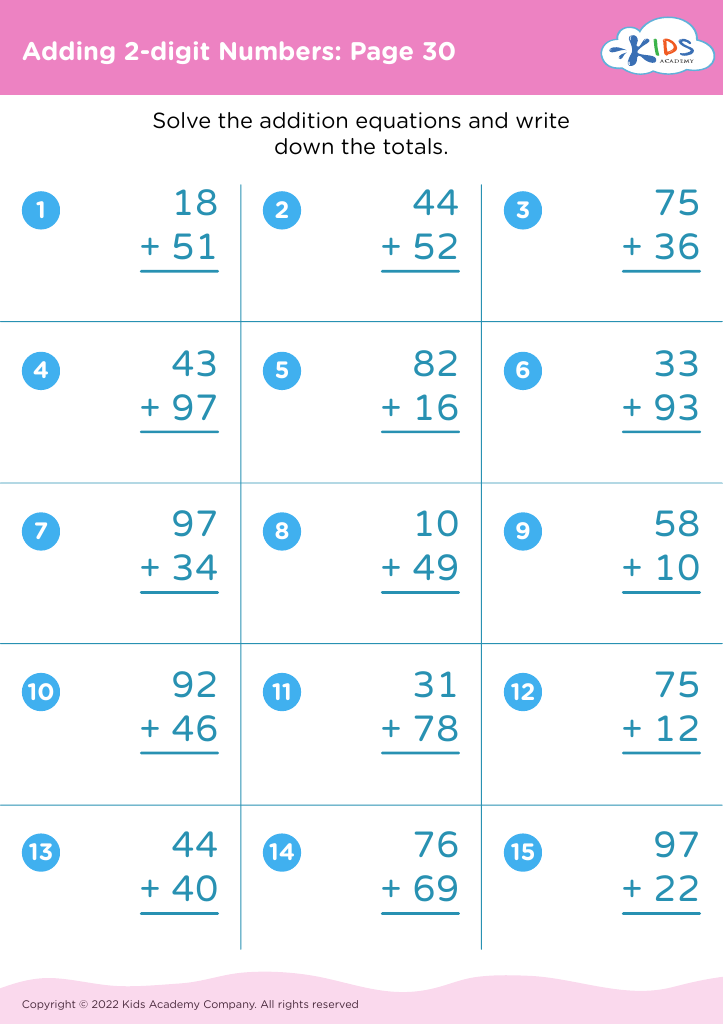Basic counting skills Addition Worksheets for 8-Year-Olds
3 filtered results
-
From - To
Discover our Basic Counting Skills Addition Worksheets designed specifically for 8-year-olds! These engaging and interactive worksheets are perfect for reinforcing foundational math skills. They help children develop their counting abilities and understand the principles of addition through fun activities and colorful visuals. With a variety of exercises tailored to different learning styles, these worksheets make learning enjoyable and effective. Ideal for both classroom settings and at-home practice, our resources provide the perfect support for young learners on their mathematical journey. Give your child the tools they need to build confidence in math with our thoughtfully crafted addition worksheets today!
Basic counting skills and addition are foundational elements of a child's mathematical understanding and academic success. For 8-year-olds, developing proficiency in these areas is crucial for several reasons. Firstly, counting and addition form the building blocks for more advanced mathematical concepts, such as subtraction, multiplication, and division. Mastery of these skills helps children navigate everyday activities, such as handling money, measuring items during baking, or keeping track of scores in games.
Moreover, strong counting and addition skills contribute to a child’s overall cognitive development. Engaging with numbers enhances critical thinking and problem-solving abilities, fostering logical reasoning skills that can be applied across various subjects, including science and even literacy.
From a psychological perspective, mastering basic math in early childhood builds confidence and encourages a positive attitude towards learning. When children feel competent in their abilities, they are more likely to engage in classroom participation and tackle more challenging concepts later on.
Parents and teachers play a pivotal role in cultivating these skills. By providing a supportive and stimulating environment, they can help reinforce the importance of mathematics in everyday life, ensuring children recognize its value beyond the classroom. Ultimately, nurturing basic counting and addition skills leads to greater academic success and prepares children for future learning opportunities.
























